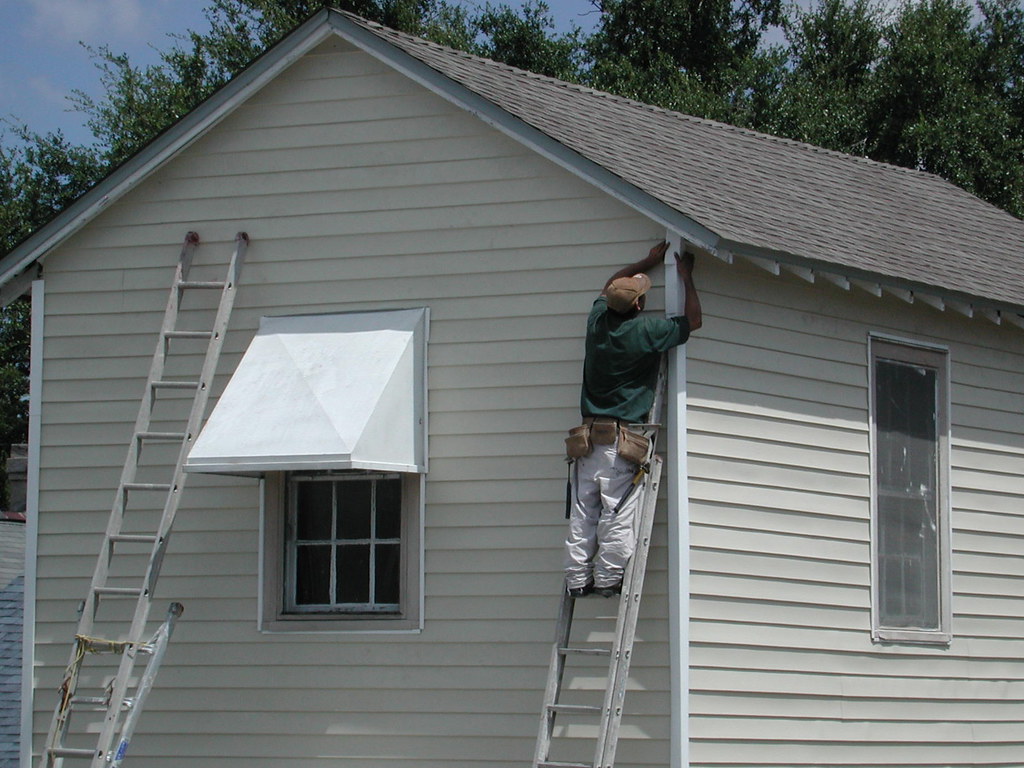If you’re interested in entrepreneurship and have a knack for construction, starting a siding company could be a lucrative venture. Siding, which is the protective covering of a building’s exterior walls, is an essential element of home construction and renovation. In this article, we’ll provide you with a comprehensive guide on how to start your own siding company and build a successful business from scratch.
Research and Planning
The first step in starting any business is thorough research and planning. Begin by conducting market research to identify the demand for siding services in your target area and analyze the competition. This will help you understand the market dynamics and determine the viability of your business idea.

Next, create a business plan that outlines your goals, strategies, and financial projections. Your business plan should also include details on your marketing strategies, target market, pricing, and estimated startup costs. It will serve as a roadmap for your business and guide your decision-making process.
Additionally, make sure to obtain all the necessary permits, licenses, and insurance required to operate a siding company in your area. Compliance with local regulations and industry standards is crucial for the success and legality of your business.
Financial Considerations
Starting a siding company requires upfront investment in equipment, materials, and labor. Estimate your startup costs and determine how you will finance your business. Explore financing options such as loans, investors, or personal savings. It’s important to have a clear understanding of your financials, including your initial investment, ongoing expenses, and projected revenue, to ensure your business is financially sustainable.
Setting your pricing strategies is also critical. Research the market rates and competition to determine competitive pricing while covering your costs and ensuring profitability. Be mindful of factors such as material costs, labor expenses, overhead, and desired profit margins when setting your prices.
Marketing and Branding
Establishing a strong brand and implementing effective marketing strategies is essential to attract customers and generate business. Develop a brand identity for your siding company, including a compelling company name, logo, and a professional website. Your brand should convey your company’s values, expertise, and unique selling proposition to differentiate yourself from competitors.
Create a marketing plan that includes both online and offline strategies to reach your target market. Utilize social media, search engine optimization (SEO), pay-per-click advertising, and other digital marketing tactics to generate leads and increase visibility. Offline marketing efforts may include networking, attending trade shows, and distributing flyers or business cards.
Building a positive online reputation is crucial in today’s digital world. Encourage satisfied customers to leave reviews and testimonials on your website, social media pages, and other online platforms. Positive reviews can significantly impact your company’s reputation and help attract more customers.
Operations and Logistics
Setting up efficient operations and logistics is key to managing your siding projects effectively. Depending on the scale of your business, you may need to establish a physical location or office. Hire and train employees, if necessary, to handle various tasks such as project management, customer service, and administrative duties.
Invest in quality equipment and tools that are necessary for siding installation or renovation. Develop processes and procedures for scheduling jobs, managing materials, and ensuring quality workmanship. Efficient operations and logistics will help you deliver projects on time, within budget, and to customer satisfaction.
Providing Quality Service
Providing high-quality service is crucial for the success of your siding company. Gain expertise in different types of siding materials and installation techniques, and stay updated with industry trends and best practices. Delivering superior craftsmanship and exceptional customer service will help you build a positive reputation and gain repeat business and referrals.
Communicate openly and transparently with your customers throughout the project, addressing any concerns or issues promptly. Respond to customer inquiries in a timely manner and strive to exceed their expectations. Building strong customer relationships and maintaining a good reputation is essential for long-term success.
Building a Professional Network
Networking is crucial in the construction industry. Build relationships with suppliers, contractors, architects, and other professionals in the field. Attend industry events, join trade associations, and participate in local business groups to expand your professional network. Collaborating with other professionals can lead to referrals and partnerships, and can help you stay updated with industry trends and opportunities.
Continuous Learning and Improvement
The construction industry is constantly evolving, so it’s important to invest in continuous learning and improvement. Stay updated with the latest advancements in siding materials, techniques, and regulations. Seek feedback from your customers and employees to identify areas for improvement and implement necessary changes. Stay abreast of changes in the market and adapt your business strategies accordingly to stay competitive.
Providing Excellent Customer Service
Excellent customer service is paramount in the construction industry. Respond to inquiries promptly, provide detailed quotes, and communicate effectively with your customers throughout the project. Keep them informed of progress, address any concerns or issues promptly, and ensure their satisfaction with the final result. Satisfied customers are more likely to refer your services to others and become repeat customers.
Managing Business Finances
Effective financial management is essential for the success of your siding company. Keep track of all your business expenses, including materials, labor, equipment, insurance, permits, and overhead costs. Set up a system for invoicing, payment tracking, and managing cash flow. Hire a qualified accountant or use accounting software to manage your business finances accurately and efficiently.
Scaling Your Business
Once your siding company is established and generating steady revenue, you may consider expanding your business. This could include hiring more employees, expanding your service area, offering additional services, or even opening additional locations. However, scaling your business requires careful planning and management to ensure sustainable growth without compromising quality or customer satisfaction.
Conclusion
Starting a siding company requires careful planning, diligent execution, and continuous improvement. By conducting thorough research, creating a solid business plan, implementing effective marketing strategies, providing quality service, building a professional network, and managing your finances well, you can set your siding company on the path to success. Remember to prioritize customer satisfaction, stay updated with industry trends, and be prepared to adapt to changing market conditions. With determination, hard work, and a commitment to excellence, your siding company can thrive in the competitive construction industry.












